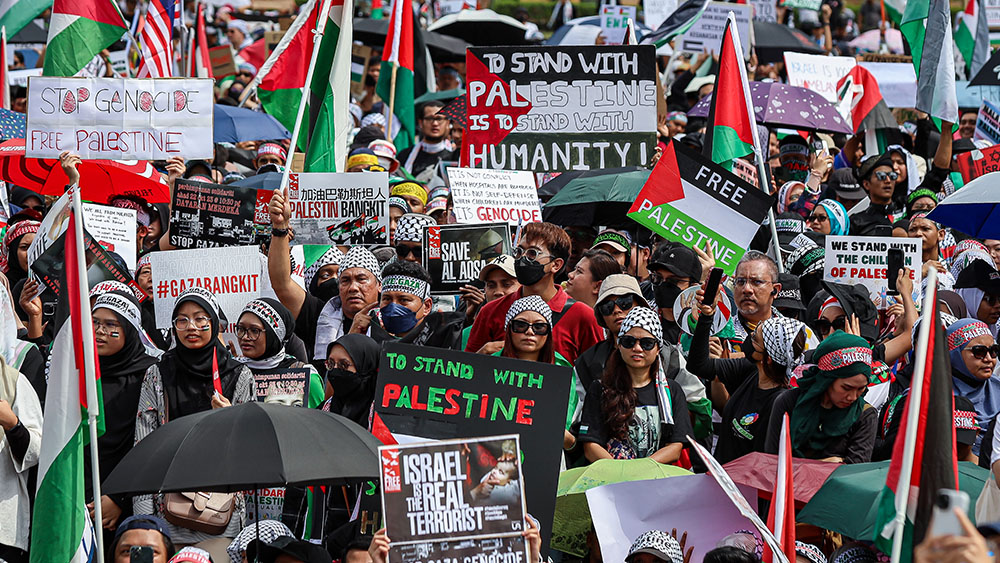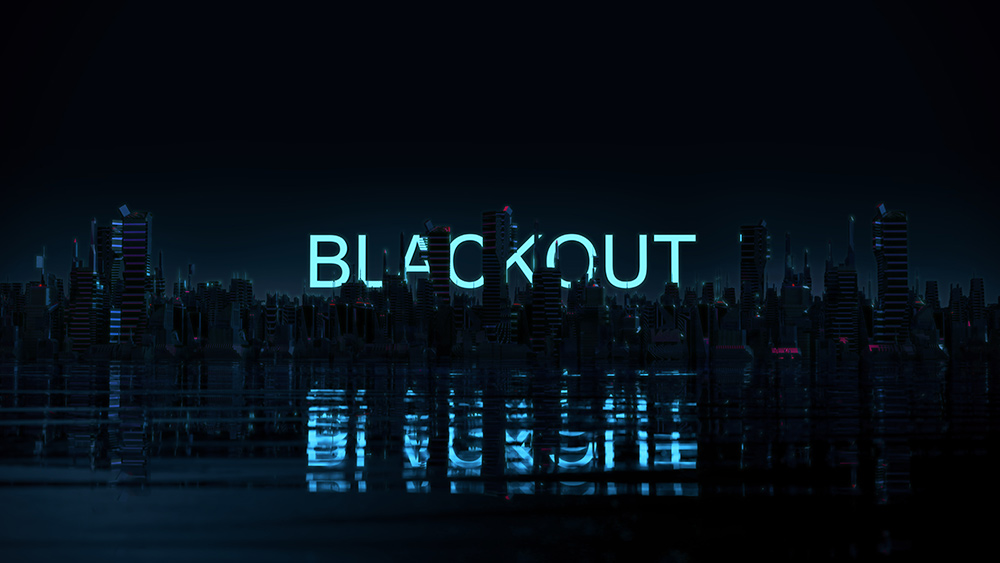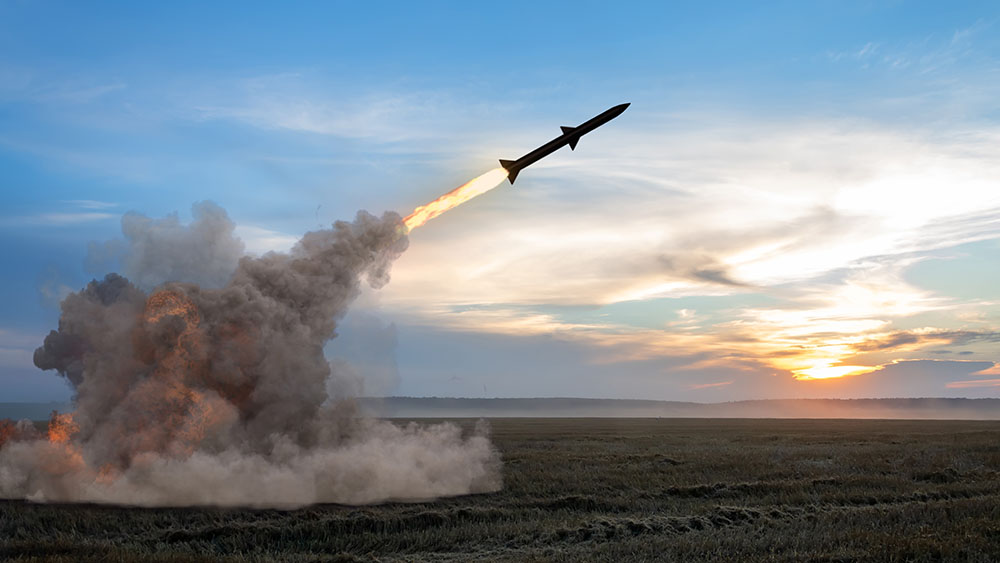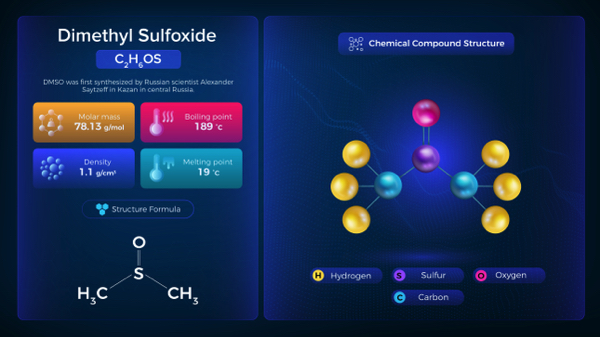 Parler
Parler Gab
Gab
- Israeli police faced backlash for initially demanding that an upcoming anti-war protest in Tel Aviv exclude graphic images of Palestinian children and terms like "genocide" and "ethnic cleansing," highlighting tensions over free speech and government transparency.
- Following media coverage, the police reversed their decision, removing the banned content and allowing unrestricted messaging, which conflicted with earlier pledges and sparked debate over the government's commitment to free expression.
- The anti-war group Standing Together condemned the initial restrictions as politically motivated, accusing Prime Minister Benjamin Netanyahu's government of using censorship to conceal the human cost of the war in Gaza and maintain political alliances.
- This incident is part of a pattern of Israeli authorities clamping down on anti-war protests, with previous instances involving outright bans, tear gas, arrests and the seizure of signs with contentious language, reflecting a systemic suppression of dissent.
- The chaotic permitting process for the Tel Aviv protest underscores Israel's dual crises of escalating violence in Gaza and domestic political fragmentation, with efforts to suppress dissent potentially intensifying global calls for accountability and highlighting the human cost of the conflict.
Censorship for political gain
Standing Together condemned the initial restrictions as politically motivated. "Netanyahu shattered the ceasefire deal to keep Ben Gvir in his coalition, halting hostage releases and killing countless children in Gaza," said the group in a statement. "Silencing protests won't hide the truth: this war has destroyed families and violated basic human rights." The statement linked the police order to Prime Minister Benjamin Netanyahu's security interests, accusing his government of using the detention of Hamas prisoners as leverage to retain National Security Minister Itamar Ben Gvir's far-right bloc in the coalition. The group also emphasized the role of media exposure in reversing the ban. This incident marks the latest example of Israeli authorities clamping down on anti-war expression since the war began. At its outset, authorities banned protests outright, with police dispersing gatherings using tear gas and making arrests. Even after restrictions were loosened in January 2024, activists reported seizures of "genocide" signs and sporadic arrests. Earlier this month, 23 participants in a small Haifa demonstration were detained. The systemic nature of these actions draws parallels to Israel's broader suppression of Palestinian voices. Overwhelmingly, civilian deaths raise questions about Israel's wartime tactics, including the destruction of entire neighborhoods in operations targeting Hamas infrastructure. The anti-war protest's chaotic permitting process in Tel Aviv captures the dual crises faced by Israel today: escalating violence abroad and domestic political fragmentation. As the death toll in Gaza climbs and global scrutiny intensifies, efforts to suppress dissent may only amplify calls for accountability. The debate over images of children and words like "genocide" is not merely about protest content – it's a microcosm of a society grappling with the human cost of conflict and the limits of free expression in times of war. Head over to WWIII.news for stories related to the ongoing conflicts worldwide. Watch the video clip below showing children in Gaza suffering from starvation. This video is from Cynthia's Pursuit of Truth channel on Brighteon.com.More related stories:
Israeli strikes kill over 100 Palestinians in a single day as Israel divides up Gaza. Israel kills Hamas commander in Lebanon, escalating tensions amid fragile ceasefire. Israel's relentless attacks on Lebanon defy ceasefire, killing civilians and soldiers.Sources include:
MiddleEastEye.net Haaretz.com Brighteon.comUnveiling the hidden battles: “The Secret History of the War on Cancer” by Devra Davis
By Belle Carter // Share
Israel accused of genocide in Gaza as South Africa demands justice at World Court
By Cassie B. // Share
Pakistan claims India is planning a strike over Kashmir tensions
By Cassie B. // Share
A comprehensive look at DMSO’s potential in cancer treatment
By Ramon Tomey // Share
Trump cracks down on sanctuary cities as leftist mayors protect criminal illegal aliens
By Cassie B. // Share
Governments continue to obscure COVID-19 vaccine data amid rising concerns over excess deaths
By patricklewis // Share
Tech giant Microsoft backs EXTINCTION with its support of carbon capture programs
By ramontomeydw // Share
Germany to resume arms exports to Israel despite repeated ceasefire violations
By isabelle // Share










